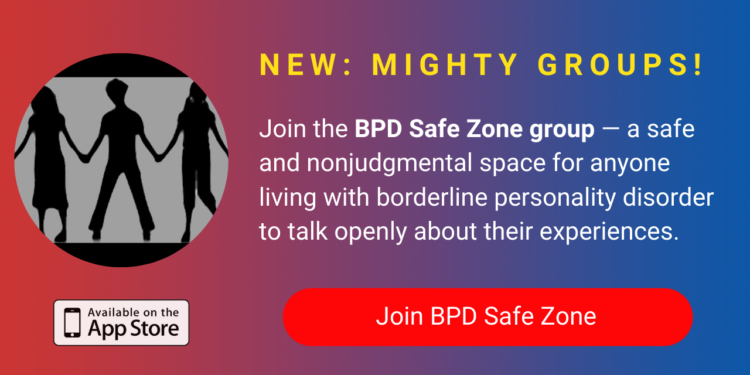Hi. My name is Gen, and I have borderline personality disorder.
As I sit here, reading that first sentence, I feel something I know all too well. There’s a tightening in my chest. My lower jaw feels like it’s being pricked with hot needles. The muscles in my arms are starting to tighten up and my stomach suddenly feels like it’s going to pop. I feel light-headed — but not dizzy — I feel like I am starting to float upwards. Tears start to form in my eyes. I just know that if I were to speak right now, my voice would be shaking.
I am ashamed. I am scared. My greatest childhood trigger, and my biggest obstacle in life, has been startled out of it’s temporary slumber (since yesterday) and is now running towards me at Usain Bolt type speed.
When most people hear “personality disorder,” they immediately jump to the Discovery Health specials of individuals with 50+ different personalities, TV shows usually involving some type of violent (usually very violent) behavior or Hollywood movies like Girl, Interrupted set in a mental institution back in the 1960’s.
For a long time, as in up until not that long ago, I also made those assumptions. I associated the term “personality disorder” with someone with “serious” mental issues (passing judgment is a great way of avoiding stuff) and I was not someone with “serious mental issues.” I had mental issues, yes, but they were “normal” ones like anxiety, depression and post-traumatic stress disorder (PTSD). You know, your average, run-of-the-mill, “most of the population has it so I’m not special” type of mental illnesses. How could I possibly be this functional if I have a (gasp), personality disorder?
Well, folks, here’s how: borderline personality disorder (BPD), is a disorder of emotional regulation. I’m not toeing some imaginary line in between two completely different aspects of myself where I am literally two different people (and if I were, I’d probably still be writing for some type of global acceptance). No. I am one person who never properly learned how to regulate their emotions, I learned super unhealthy self-soothing habits instead and my emotions can almost make it seem like I flip-flop between two people. I don’t. Trust me. I’m fully aware, like all too aware, when this happens. That’s a huge part of the problem.
I suddenly feel ashamed. I feel ashamed of my response to feeling ashamed. If it feels like you just read some strange circle of words that had your head spinning, keep repeating that sentence over and over. Welcome to my version of borderline personality disorder.
Something happens and it triggers a trauma response in me. When that trauma response is triggered, my emotional center takes over because I never learned how to balance it with my brain center. Because I am aware of this, I feel ashamed that I do not respond like a “normal” human being (which also triggers a trauma response) and then the shame of that re-triggers the whole cycle. The frequency and intensity at which this happens varies depending upon life circumstances.
For the most part, I find myself able to work through some of my regulation issues on my own by being mindful of what I’m feeling. But about 25 percent of the time, the trigger is too deeply activated and once I’m in that shame cycle, my ability to bring my brain center back into this is absolutely gone. My heart center speaks at full volume, throwing everything it has out into the universe, completely silencing my brain. I have formerly justified in a “it is great that I feel these things” mindset, but now understand there is a huge difference in feeling the feeling and knowing how to let it go, and becoming the feeling because you never learned what to do with it.
Taking the time to acknowledge the presence that borderline personality disorder can have in my life versus brushing it aside as something else has slowed the shame cycle. I can now say to my heart,
“Hey, heart. It’s really beautiful that you feel all of these emotions so passionately. You know how you can process joy and excitement in such an appropriate way? Well you can do that too. It doesn’t matter that you’re 41 years old and have probably lived out half of your life. Just as you would never expect your 7-year-old to understand quantum physics because they haven’t yet learned it, you cannot expect your halfway-to-80+ self to do something correctly when you never learned the right techniques. So be gentle. You are not Jack Nicholson in The Shining.”
Photo by Kamil Szumotalski on Unsplash


